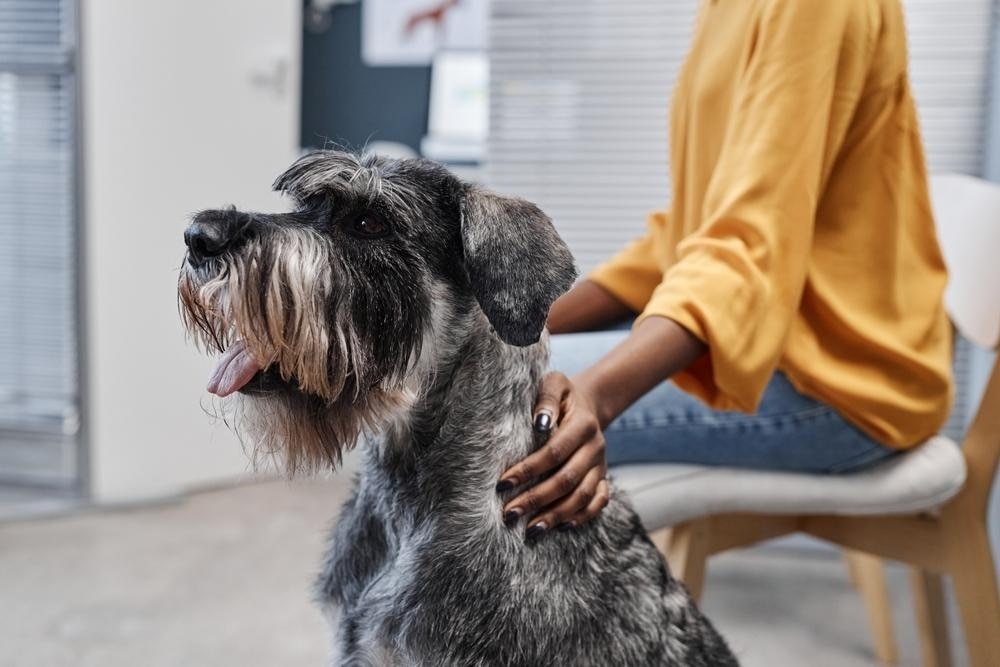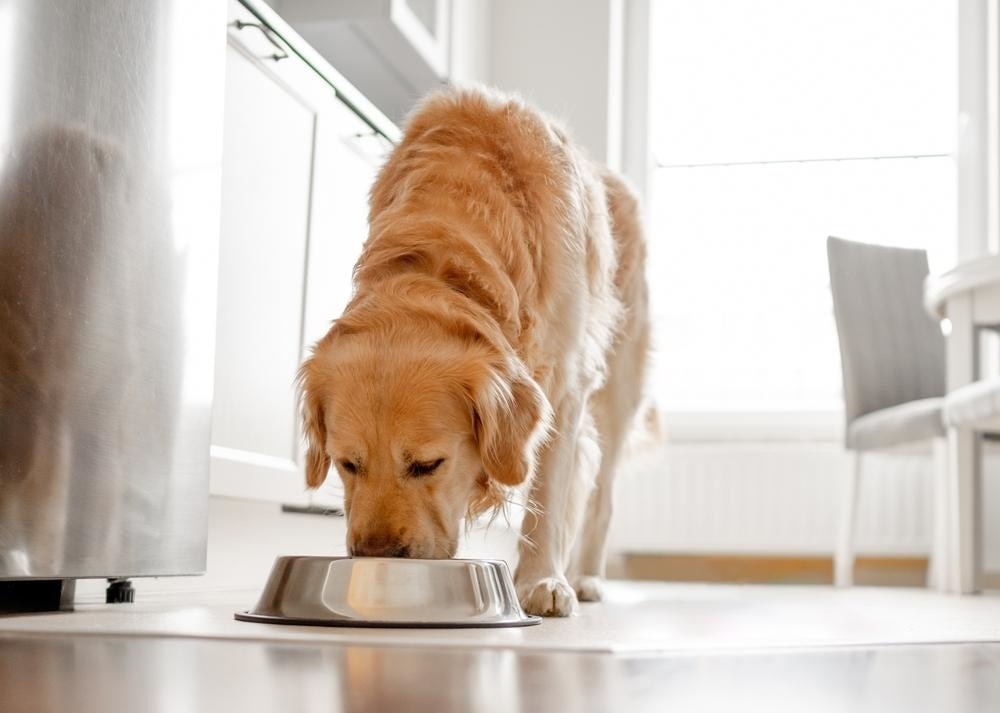

Your dog's immune system works tirelessly to keep their body safe from foreign invaders, such as bacteria, fungi, protozoal parasites, worms and viruses. So, you may wonder whether you can better protect your pup with an immune system booster for dogs. The immune system is highly complex, and healthy function is a delicate balancing act. If it's too weak, infection or illness can overrun the body. An overactive immune system can lead to chronic inflammation, allergies or autoimmune diseases.
Here's what you should know about healthy immune function and how to provide the best immune system support for dogs.
All About Dogs' Immune Systems
According to the Merck Veterinary Manual, your dog's immune system includes three layers of defense to protect against external invaders and potentially harmful substances.
Physical Barriers
Physical barriers include the skin, cornea of the eye and lining of the respiratory, urinary, reproductive and digestive tracts.
Innate (Nonspecific) Immunity
Your dog is born with innate immunity. This natural process triggers inflammation in response to any potential threat, which sends white blood cells to attack invaders and remove damaged cells. It's considered the "first-line" immune response because it responds the same way to all invaders.
Adaptive (Specific) Immunity
Unlike nonspecific immunity, your dog isn't born with specific immunity. Rather, their body develops it over time. As their immune system encounters each invader, it learns the best way to destroy that specific substance. This process relies on developing an antibody memory — in other words, if your dog ever encounters the same invader again, their immune system will know how to handle it.

Factors That May Compromise Immune Health
Several factors can impair healthy immune system function in dogs, including:
Chronic stress
Poor nutrition
Certain medications, such as corticosteroids
Lack of sleep
Chronic overexertion
Secondhand smoke
Insufficient exercise
Providing Immune System Support for Dogs
Knowing how important the immune system is to keeping your dog healthy, you may wonder if there's anything you can do to boost its function. Here are some general guidelines.
Exercise
Play and exercise promote your dog's overall health and well-being, from supporting better sleep and mental wellness to reducing unwanted behaviors and strengthening bones and muscles. It also helps prevent canine obesity and benefits — you guessed it — the immune system. Exercise improves circulation, distributing immune cells throughout the body where they're better prepared to rapidly respond to potential threats. Activity can also reduce stress, which can impair immune function.
Regular exercise may also help your dog's recommended vaccines work better. In humans, many factors influence immune response to vaccination, including genetics, age, health, nutrition and exercise. The healthier you are, the better your response. We can extrapolate this phenomenon to dogs.
Stress Reduction
Chronic stress suppresses dogs' immune systems. Boredom is one cause of stress. Dogs need daily activity and mental stimulation, such as through play, training, food puzzles and daily walks. Some dogs may enjoy running, hiking, biking or swimming — whatever aligns with their preferences and physical abilities. In addition, foster a calm, enriching home environment and stick to a consistent feeding and activity schedule to establish a routine.
Weight Control
Obesity is an inflammatory condition that can affect immune system function. By keeping your dog at a healthy weight, you can help ensure they're in the best possible condition to fight off invaders. Your veterinarian can help you determine your dog's ideal weight and make a plan to reach or maintain a healthy body condition.
Regular Veterinary Care
Your vet is your best ally in keeping your dog healthy. This includes keeping their vaccinations current to help out where their immune system can't. Attend your dog's annual wellness visits so your vet can administer vaccinations as needed and assess their overall health.
Nutrition for Immune Health
Your dog's immunity depends on alert surveillance for foreign invaders, timely coordination of chemical messengers, stored antibody memory and lots of strong immune cells to attack, repair and clean up as needed. This takes significant effort and energy, which is why it's so important to provide your dog with complete and balanced nutrition. Here are some key ingredients in dog food that support healthy immune function and overall well-being.

Protein
Protein is an essential nutrient and source of amino acids like taurine and methionine, which play a critical role in immune system function.
Prebiotics and Probiotics
A dog's gastrointestinal tract contains about 70% of the immune system. Guaranteed live canine-specific probiotics and prebiotics can support a healthy microbiome by supplementing or nourishing beneficial microorganisms in your dog's gut, respectively.
Omega-3 Fatty Acids
Fatty acids and oils help dogs absorb fat-soluble vitamins and play important roles in immune system function. For example, omega-3 fatty acids EPA and DHA have potent anti-inflammatory properties.
Zinc
Of the many essential minerals for dogs, zinc plays a vital role in immune cell signaling, influencing immune cell activity, function and development.
Antioxidants for Dogs
Antioxidants like beta-carotene, vitamin C, vitamin E, vitamin K and selenium reduce oxidative stress, which is associated with illness, disease and decreased longevity in dogs. Complete and balanced pet foods have appropriate levels of antioxidants. Only supplement your dog with antioxidants (or any nutrient) under your vet's guidance.
Providing Comprehensive Care
To support immune health, provide your dog with daily exercise and complete and balanced nutrition for their life stage. From there, keep them at a healthy weight and work with your vet to protect them against infectious diseases. Your dog's immune system will take it from there.



















